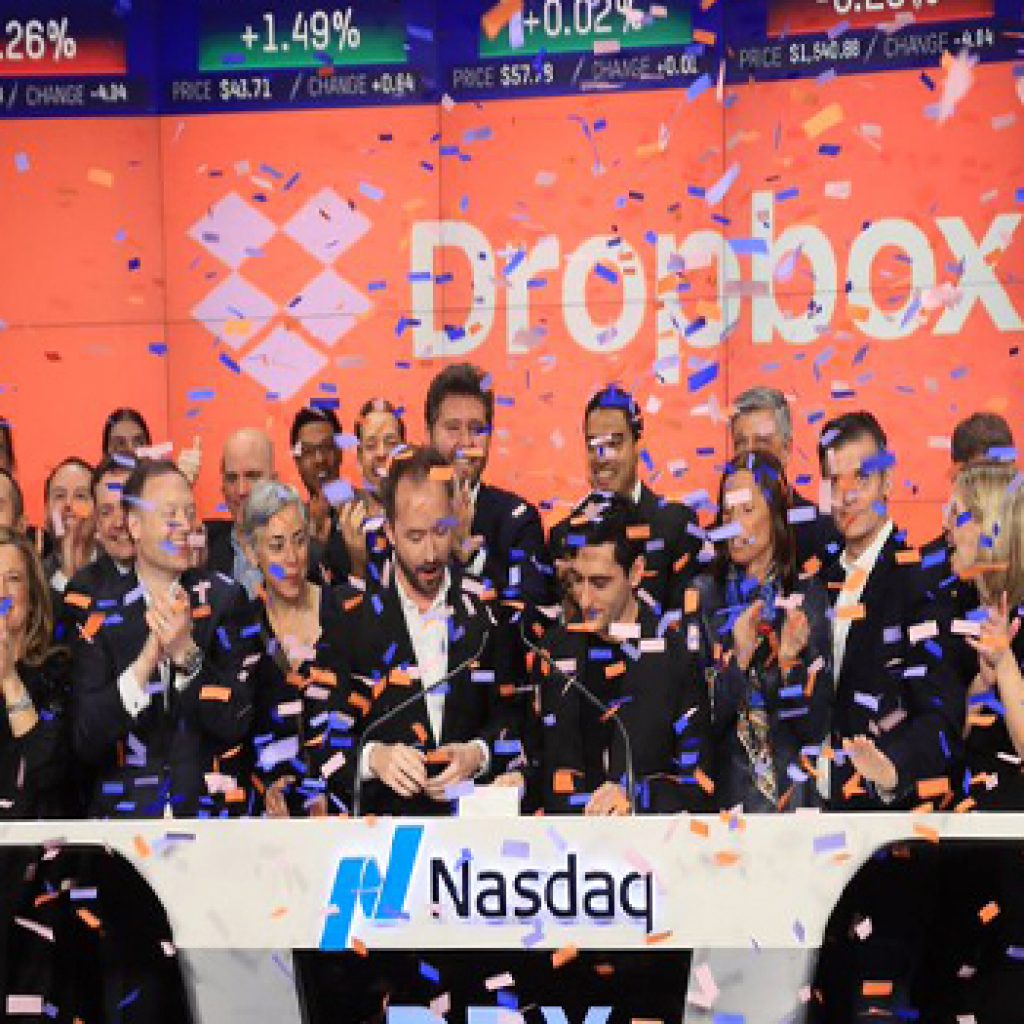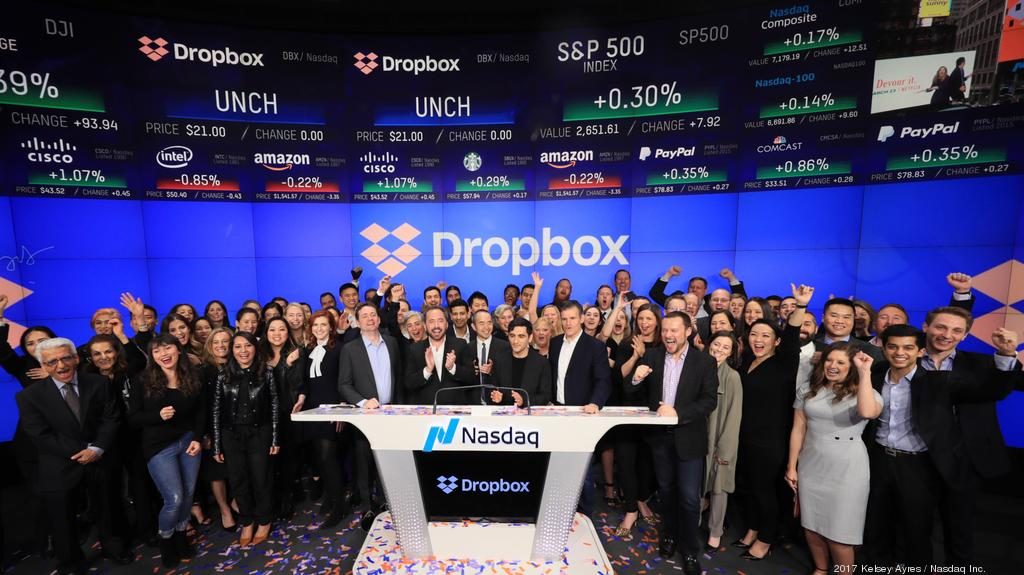
Dropbox began its market debut extremely well as shares topped their marketed range in the biggest technology initial public offering (IPO) of the year.
One share was valued at $28.48 when the market closed in New York on Friday, thus empowering the file sharing company with a market valuation worth $11.2 billion. They rose over 50% the amount initially asked in their IPO to as high as $31.60.
Four years ago, in the company’s last private funding round, Dropbox was valued at $10 billion. The success of Dropbox on the market share could help resolve the one problem that has been restraining Silicon Valley companies from going public – their own heavy price tag.

Dropbox first targeted a market valuation at $7.1 billion but the strong demand for the file sharing company’s shares contributed to the raise of its valuation. On Thursday, the company was able to sell 36 million shares for $21, hence raising $756 million, inclusive of certain shares sold for $18 to $20 per piece. Tags that were already significantly more when compared to the initial price range.
Investors were even spending on acquiring equity markets despite the fact that technology stocks fell on Thursday and consequently sent Nasdaq 100 Index to its biggest decline in six weeks. And while every major US indexes were healing their losses, Dropbox plummeted on Friday.
Dropbox seems to be among the few companies to defy the dreaded ‘down round’ at its IPO, which refers to a company debuting in the market share failing to match its valuation to its fundraising promise.
The share flow that occurred on Friday proves that investors are not worried about the potential of Dropbox in becoming a successful public company. In general, companies that have raised billions of dollars from private investments that subsequently soared their valuation always create doubts about whether the company can live up to the expectations and contribute in slowing down the US IPO pipeline.
Before the IPO, companies usually prepare strategic plans to increase their private valuations.
MDat tech-focused investment bank Union Square Advisors, Yogesh Amle shared,
“There was always a little of fear around acknowledging that if I price below what it was previously, there was a guilty feeling that it was a failure. You just have to open up to the reality that we have to price this pragmatically.”
Market value and IPO performance cannot alone state whether a company joining the public sector is successful. However, it has often contributed to the company’s customer relationships and employee morale or its ability to raise additional funds.
